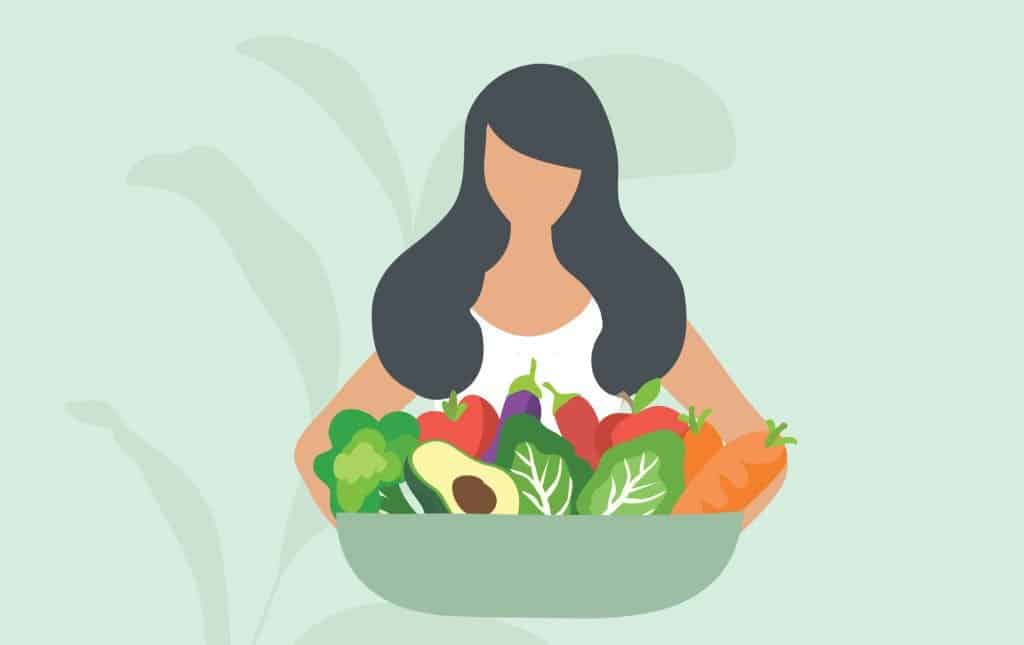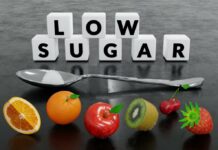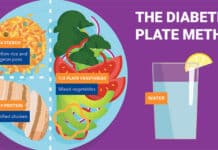If you're new to the keto diet, you might not know that you're required to eat a lot of vegetables.
Keto vegetables are a great source of fat and should be a large part of your keto diet. Since they're so good at keeping you full, you can usually substitute low-carb veggies for a starchy alternative, helping you keep your sugar intake low without giving up flavor.
There are hundreds of vegetables you can consume on the ketogenic diet, but some are better than others when it comes to keeping your carb intake low.
As with any diet, knowing what keto-friendly foods you can and can't eat is important. Especially in this post, we'll go over the top 15 keto vegetables.
You can consume these keto-friendly vegetables in a variety of ways, including raw, cooked, pickled, and more!
Keep in mind that the exact carb counts will vary depending on the specific vegetable. Vegetables also have different effects on blood sugar levels depending on how they're cooked and what they're paired with.
This guide will help you get the most out of your vegetables while staying keto.
Low-Carb Keto Veggies List
To make things easier, we've rounded up 15 low-carb vegetables that will help you stave off cravings and keep your body fueled to burn fat and not sugar.
1. Sweet Potato
Sweet potatoes are a delicious, versatile vegetable used in many different dishes.
A medium-sized sweet potato has only 25g of net carbs, making it a great choice if you follow a low-carb diet.
Sweet potatoes can be baked, boiled, or fried and are a delicious addition to any meal.
2. Brussels sprouts
Brussels sprouts are a cruciferous vegetable that is low in calories and full of nutrients.
This keto-friendly veggie is a great source of vitamin C, vitamin B6, and vitamin K, as well as a good source of minerals like manganese, potassium, and phosphorous.
A 1-cup serving of raw Brussels sprouts contains 32 calories, 4 grams of carbs, and 3 grams of fiber.
3. Broccoli
Broccoli is a high-fiber vegetable, making it a great addition to your keto diet. It's rich in Vitamin C and antioxidants, so it can help reduce inflammation in your body. Broccoli is also full of beta-carotene, which converts to Vitamin A in the body.
As an antioxidant, Vitamin A can help fight against cell damage that can lead to cancer. A single serving of broccoli has about 40 calories and less than one gram of net carbs.
Broccoli is also pretty versatile. You can steam or roast it or eat it raw with a dip. You can also buy it pre-chopped in a bag for convenience.
4. Spinach
Spinach is one of the most keto-friendly vegetables out there. It is also an excellent option for anyone trying to increase their vegetable intake.
Whether or not you are on a ketogenic diet, spinach is a vegetable you should consider adding to your plate. It is high in vitamins such as folate, vitamin C, and vitamin K.
It is also an excellent source of iron, potassium, calcium, manganese, and magnesium.
A cup of raw spinach contains 7 calories, 0.2 grams of fat, and 2.2 grams carbohydrates.
The carb content is so low that you can eat spinach on a ketogenic diet without having to worry about carb counting.
Spinach also has a high water content, which is great if you are trying to eat more low-calorie foods.
5. Kale
Kale is one of the most popular superfoods in the world, and for a good reason. Kale is a leafy green vegetable originating from the Mediterranean and Asia.
Kale is a nutritional and low-calorie powerhouse. It is high in vitamins A, C, K, and manganese.
Kale is also high in calcium, potassium, and iron. Kale is also considered to be a complete protein source.
6. Cauliflower
You can't have a list of foods that burn fat without mentioning cauliflower. This low-carb powerhouse is a great addition to any ketogenic diet.
Cauliflower is a cruciferous vegetable rich in phytonutrients, antioxidants, vitamins, minerals, fiber, and much more.
It's also rich in fiber, which helps to lower cholesterol, stabilize blood sugar and maintain a healthy digestive system.
7. Watercress
Watercress is a leafy green vegetable often used in salads or as a garnish. Often grown in other parts of the world, watercress is a bit of an exotic vegetable that is just now beginning to be used by more people in the United States.
Watercress has a very peppery taste and works well in salads and vegetable dishes. It's a great addition to any keto diet menu plan.
8. Lettuce
There are many different types of lettuce, and most of them will work to help you stay in ketosis. Romaine lettuce, Boston lettuce, butter lettuce, and green leaf lettuce are all excellent options.
If you are trying to lose weight on a low-carb diet, try to stick to the darker varieties of lettuce, such as the green leaf, as they have more nutrients.
Iceberg lettuce is also okay but doesn't have as much fiber or nutrients as the darker varieties.
Lettuce is low in calories and has a decent amount of fiber. One cup of chopped romaine lettuce will only set you back 12 calories while providing you with 2 grams of fiber.
Iceberg lettuce has just a bit more, coming in at 14 calories per cup, but it also has more sugar. That's not a huge difference, but it's still worth noting.
Romaine and green leaf lettuce are also high in vitamins A and C, so you'll be getting some good nutrients with your low-carb food.
9. Green Onions
Green onions might be green, but these leafy vegetables are more closely related to leeks and garlic than onions.
Green onions are a great option for keto dieters since they have only around 3 grams of net carbs in a half cup of chopped green onion.
Green onions can be enjoyed in soups, on top of pizza, or sauteed in butter. You can also add them to stews and curries.
10. Konjac Root
If you've ever eaten Japanese food, you've probably come across konjac root. It's basically a jelly-like substance, and it's mainly composed of water and glucomannan, which is a water-soluble dietary fiber.
Konjac root is usually served as a gelatinous dessert or a substitute for tofu. It has a soft and spongy texture, which is similar to tofu, and it's a great source of fiber. It's also packed with antioxidants and other nutrients.
11. Eel
Eel is definitely one of the unique low-carb vegetables. It is a firm, lean fish known to be quite bony. The fish is commonly found in the Mediterranean and Africa.
The only place you can find it in the US is in sushi bars. One of the best things about eel is that it is packed with omega-3 fatty acids. It's low in carbs, high in protein and rich in nutrients.
12. Asparagus
The fact that asparagus is a keto vegetable should be enough to send you running to the grocery store. But, if you were on the fence about this veggie before, we're about to change your mind.
Asparagus is an excellent source of vitamins C and A, as well as minerals like manganese and fiber, which have been shown to help lower cholesterol levels.
One study suggests that asparagus can help prevent the formation of blood clots and lower blood pressure. Asparagus is also an excellent source of folate, a B vitamin that works to prevent memory loss, depression, and dementia.
13. Bok Choy
Bok choy is one of the most popular Chinese vegetables. It is also known as Chinese white cabbage or pak choi. It has a robust flavor, so it is generally eaten cooked.
It is a member of the cruciferous vegetable family, which also includes broccoli, cauliflower, and cabbage. Bok choy is high in vitamins A, C, and K, folate, and an excellent fiber source.
Bok choy is also very low in calories and carbohydrates, which makes it one of the most keto-friendly vegetables.
14. Cucumber
Cucumber is a good source of antioxidants, silica, and vitamins K, C, and B6, and an excellent source of dietary fiber, potassium, magnesium, and manganese.
Like other vegetables in the cucumber family, cucumber is high in water and adds a satisfying crunch to salads.
Cucumbers can also be enjoyed raw, grilled, or pickled and can be enjoyed in a variety of dishes.
15. Zucchini
Zucchini is a popular keto vegetable, as it's relatively low in carbohydrates and calories and high in fiber.
Zucchini is also a good source of vitamin A, vitamin C, vitamin K, and fiber. In fact, just one cup of zucchini provides close to 30 percent of your daily recommended vitamin C intake.
There are two types of zucchini: summer squash and winter squash. The flesh is similar in both, but their taste and appearance are very different.
Summer squash is light, bright green, and has a mildly sweet flavor with no bitterness, similar to pattypan squash. Winter squash is darker and sweeter than summer squash, with a distinct, rich flavor.
It's usually larger than summer squash and is usually eaten cooked. Zucchini is a great source of riboflavin, niacin, folate, and pantothenic acid.
Final Words
If you are living the keto lifestyle, it is important to eat plenty of healthy fat and protein, as well as plenty of low-carb vegetables, to help you stay on track.
We know that it can be challenging to follow a healthy diet when you're on the ketogenic diet, so that's our list of keto-friendly vegetables that will help you stay on track with your diet and provide you with some great benefits.
We hope you found this post useful, and if you have any questions or comments, please feel free to contact us and let us know what you think! Happy eating!






